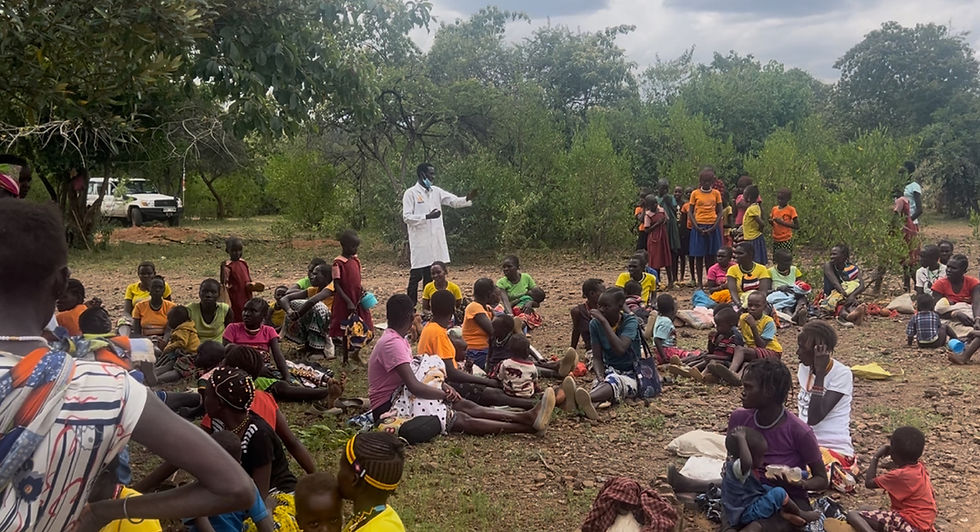Kasigho Panga
- Hellen Nyakundi
- Nov 14, 2020
- 2 min read
Updated: Nov 24, 2021
Kasigho Panga is a 2-year-old boy and one of the youngest confirmed Kala-azar patients treated at Kimalel Health Centre (HC), in Baringo County, Kenya. He was screened by a team of clinicians at Chesakam Village, East Pokot during an active Kala-azar screening survey on July 27th, 2017.
Kasigho was brought to the screening site by his grandmother. He was very weak and showed clear signs of severe malnutrition. According to Kasigho’s uncle, Kukat Kamaina, one of the VL trained community health volunteer (CHV) at Chesakam Village, the father died in 2016 from unknown causes.
After her husband’s death, Kasigho’s mother took her son back to her parent’s home in Chemolingot. Kasigho had been sickly since birth but never received proper medical attention. His mother later abandoned him at his paternal grandmother’s house when his condition worsened. The child was screened by the project team six days later.
Due to his critical condition, he was rushed to Kimalel Health Centre. The child’s hemoglobin was very low and he needed blood transfusion. However, Kimalel does not transfuse and immediately referred the child to a higher-level referral hospital in Kabarnet. The child needed to get there fast, but the one ambulance at Kimalel was grounded. The situation was further compounded with an on-going nurses strike which prevented Kabarnet Hospital from receiving in-patients.
We contacted the County Executive Committee Member (CEC) for Health, Dr Kwonyike, as well as Dr. Kamau, the Chemolingot Hospital medical supretendent (head of hospital) and another administrator of hospital services in Kabarnet to arrange for an immediate admission despite the strike. They immediately secured admission for the child but we had to organize for transportation. One of the Project’s field assistant, Samuel Chirchir, was requested to accompany Kasigho and his grandmother to Kabarnet hospital using public means, a distance of about 30 km. As transport arrangements were being made a blood booster was purchased and given to the child. We bought Kasigho a change of clothes, several warm sweaters, trousers and shirts because his grandmother didn’t have any for him. After a successful blood transfusion that took three days, the child was transferred back to Kimalel for Kala-azar treatment.
At Kimalel, the child was treated for both Kala-azar and malnutrition over the next month. The child responded well and was discharged after completing the dose. The project arranged to transport Kasigho and his grandmother back to Chesakam Village. A phone call to the uncle a month later confirmed that the child was fully recovered and well.
Malnutrition and Kala-azar are serious poverty-related public health problems. Malnutrition combined with infection can weaken the immune system and can easily result in mortality or disability.
Kasigho had the odds stacked against him. With the continued support of Izumi and other partners, Kasigho (one case among many representing the community) can enjoy better health due to improved access to Kala-azar health services.





Comments